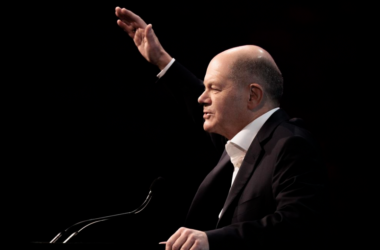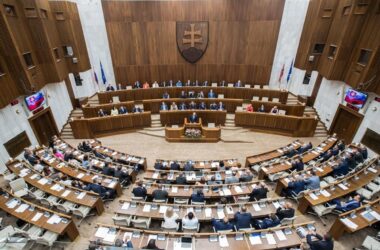Czech Prime Minister Petr Fiala has called on NATO members to ramp up their defense spending, citing a shifting global security landscape and declining U.S. willingness to shoulder Europe’s defense burden.
Speaking with Echo24, Fiala urged allies to consider raising their military budgets to 3 percent of GDP, arguing that the current 2 percent target is no longer sufficient.
“Two percent is the bare minimum, but let’s face it, not everyone even hits that mark,” Fiala pointed out. He stressed the need for a serious discussion on whether higher defense spending is both necessary and achievable.
The Czech Republic, for the first time in two decades, met NATO’s 2 percent threshold, allocating 166.8 billion crowns (€6.6 billion) to defense in 2024. While this achievement marks progress, Fiala insisted it’s just a starting point. He proposed a gradual increase to 3 percent of GDP, emphasizing the long-term planning required for such a move.
Fiala didn’t mince words about the reduced American enthusiasm for fully defending Europe. “Regardless of whether Donald Trump or someone else is in the White House, the U.S. commitment to Europe’s complete defense is decreasing. Just look at the internal debates happening in America. It’s in our best interest to take care of our own security,” he remarked.
Trump, set to take office as U.S. President again, has been vocal about NATO’s financial imbalance, reiterating this week that European allies must step up. “They can afford it,” Trump said, adding, “Why are we footing billions more when there’s an ocean between us?” He even floated the idea of pushing NATO members to spend 5 percent of GDP on defense.
Fiala’s remarks align with Trump’s long-standing criticism of NATO’s burden-sharing. While Europe has historically leaned on American military support, Fiala believes Europe must adapt to changing times.
His government has taken concrete steps to modernize Czech defense, such as purchasing F-35 fighter jets, a move that not only strengthens military capabilities but also boosts domestic industries. Fiala highlighted the economic upsides of defense spending, from job creation to technological advancements, underscoring its broader benefits.
The urgency of this debate has intensified amid Russia’s war in Ukraine, which has forced NATO to reinforce its eastern flank. NATO estimates reveal that 23 member states met the 2 percent GDP target in 2024, compared to just three a decade ago. Some, like Poland, are already exceeding 3 percent, with defense spending reaching 4.12 percent of GDP.
Fiala’s comments echo broader concerns from NATO Secretary General Mark Rutte, who recently stated, “We’re going to need a lot more than 2 percent.” While France and other EU nations have lagged in meeting NATO’s targets, Fiala’s proactive stance demonstrates a readiness to step up.
In the end, Fiala’s message is clear: Europe must take responsibility for its security. With Trump’s return to the White House looming, the pressure on NATO allies to do more isn’t going away. Instead of waiting for another nudge from Washington, Fiala is urging Europe to wake up and act.




